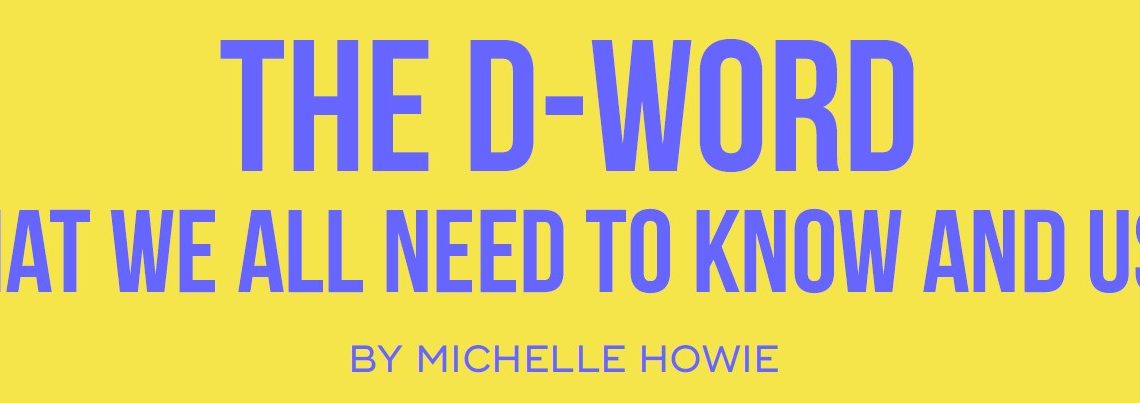The D-word that we all need to know and use

This article originally appeared in Training & Development magazine, June 2022 Vol. 49 No. 2, published by the Australian Institute of Training and Development.
Download this article as a pdf here.
____________________________________________
A critical skill in critical thinking, discernment is the ability to show good judgement about the quality of someone or something.
The problem statement almost writes itself. In an age of avalanche-level information and access to afore-mentioned information, we are increasingly aware that sources are not always trustworthy. Within the challenge of source-credibility, we still need to navigate information on an hourly basis.
How might we improve our skill to know, recognise, or understand something, especially something that is not obvious?
Part of the answer is a D-word. Discernment.
Discernment helps you find the right resource on the internet, using the right search term. Life gets tricky when you search for ‘leadership training’ and get 1,060,000,000 results in under one second. Like a bell ringing in the depths of our minds, discernment is the old-fashioned notification alert that cautions us, ‘hang on a minute, let’s slow down and think about this’.
Discernment helps us sift and sort, categorise and conclude. It’s a lifesaver – and we can (and do) develop this skill in all areas of our lives. How else do we comprehend over one billion search results on Google? How else do we interpret first impressions and ‘gut feel’ in our human interactions? Discernment is at play in every one of us, to varying degrees.
The connection between discernment and critical thinking is clear. An individual who practices discernment will embrace wider sources of information and integrate nuanced judgements about a situation before reaching a conclusion.
If something is bristling and causing a reaction as you read this, perhaps you are sensing the implicit moral value and positive character judgement at play here. We are likely to also attribute wisdom, balanced thinking and fairness to someone who uses discernment in their choices. Even Jane Austen was a fan, saying,
“There is a quickness of perception in some, a nicety in the discernment of character, a natural penetration, in short, which no experience in others can equal.”
Sounds like a super-human character trait doesn’t it? I can aspire to this, but I’m likely to fall short on many occasions. Hello, messy, imperfect life. Let’s explore for a minute whether discernment has any downsides.
Bingo.
It doesn’t always suit a time-pressured situation – Austen’s ‘quickness of perception’ is a long labour for others. Discernment, exercised to its fullest, can clog up decision-making and create frustration for others who do not share this virtue. I would say it’s a case of ‘time and place’. A discerning leader may create an investigative and curious culture in the team, to better uncover those wider perspectives and views. But linger too long on your choices and you are holding up the lunch queue, which will inevitably cause tension for others.
And yet discernment is a skill for our age and one well worth developing further. Here are some thoughts on how to bring the D-word forward in your own work and life.
Mental models
- Major the majors, minor the minors
- A favourite phrase from a dear friend of mine, this mental model helps us get crisply clear on what really matters and what can be parked and let go of. A fantastic tool for prioritising our way out of the ‘everything is urgent’ swamp.
- Assemble your challenge network
- Discernment makes for a great team exercise. Shortlist the people in your network who would respond to a request for feedback and added perspectives. Adam Grant firmly believes in the power of constructive criticism, via what he calls his ‘challenge network of insightful critics”.
- Better to best
- Once you’ve categorised the good options from the bad, try re-classifying the good list into a spectrum from better to best.
Physical actions
- Sleep on it
- This is my personal ninja move to manage my raging impatience trait. I buy myself time to slow down my thinking with responses like, “I’d like to think about that overnight and get back to you”, or “give me some time to look into that, I want to take care with this decision”.
- Say “I don’t know”
- Lean into the ‘I don’t know’ space of decision-making and admit out loud when you don’t have a rock-solid sense of what to do next. Honest and transparent communication builds huge trust in decision-making. Paired with some time to reflect, saying ‘I don’t know yet, but I intend to’ is a wonderfully authentic way to practise discernment.
To wrap up, whilst discernment can seem like a lofty goal and a distant horizon, the direction of travel to get there is a journey filled with helpful lessons.
Discernment is a close cousin to the very humane and interpersonal realms of attunement and sensitivity to others. Yes, there are real and tangible benefits to discernment in the contemplation of decisions and work-based situations. But soaked throughout discernment is the business of being human. We can perhaps see that a discerning person might also feel a deep sensitivity to someone else’s reality, really see them for who they are.
I love this quote from the 19th century poet Lord Byron,
“Her great merit is finding out mine – there is nothing so amiable as discernment.”
I hope you enjoy exploring discernment in your work and your human relationships this month.


Recent Comments